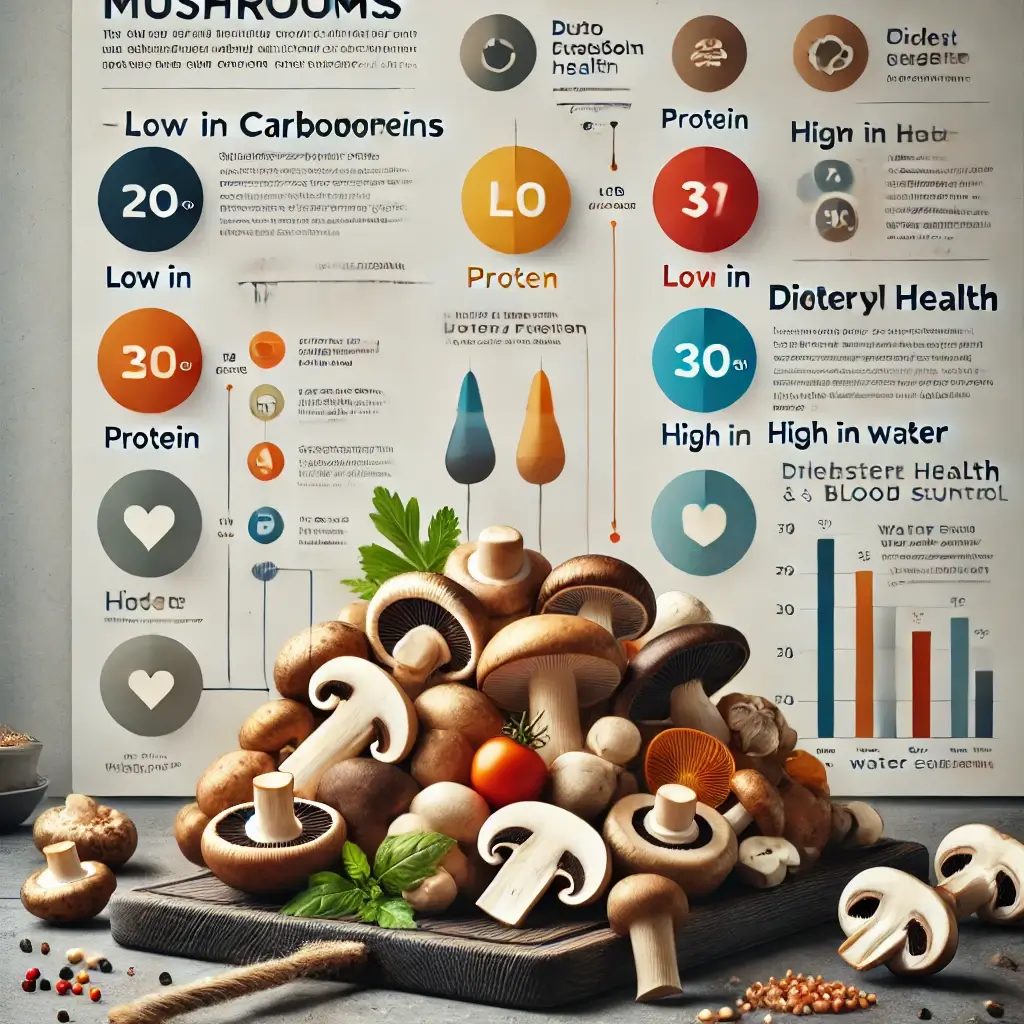Mushroom Macronutrient Classification
Mushrooms are a type of fungus and are not classified as a macronutrient. Macronutrients are nutrients that the body requires in large quantities, such as carbohydrates, protein, fat, and water. Mushrooms are high in dietary fiber, B vitamins, and minerals, but they are low in carbohydrates, protein, and fat.
Essential Macronutrients Overview
Carbohydrates are the body’s primary energy source. They can be found in bread, pasta, rice, and potatoes. Mushrooms have only about 2 grams of carbohydrates per cup. Protein is required for the formation and repair of tissues. It can be found in meat, poultry, fish, eggs, and dairy products. Mushrooms have approximately 2 grams of protein per cup. Fat provides energy and essential fatty acids. It can be found in foods like oils, nuts, and seeds. Mushrooms have a very low fat content, about 0.5 grams per cup.
Water Content in Mushrooms
All bodily functions require the presence of water. It accounts for roughly 60% of the body’s weight. Mushrooms are approximately 90% water.
Dietary Fiber Content
Dietary fiber is an indigestible component of plant foods that adds bulk to the diet and aids in the maintenance of a healthy digestive system. Mushrooms have soluble and insoluble fiber. Soluble fiber dissolves in water and forms a gel-like substance that aids in digestion and cholesterol absorption. Insoluble fiber does not dissolve in water and contributes to the health of the digestive system.
Nutritional Benefits
One cup of cooked mushrooms has about 2 grams of fiber. This amounts to about 8% of the adult daily recommended intake. Mushroom fiber content varies depending on the type of mushroom. The highest fiber content is found in button mushrooms, followed by cremini and portobello mushrooms.
Health Benefits of Dietary Fiber
Dietary fiber aids in the health of the digestive system by adding bulk to the stool and preventing constipation. By binding to bile acids in the digestive tract, soluble fiber helps to lower cholesterol. Dietary fiber can aid in blood sugar control by slowing sugar absorption into the bloodstream.
Incorporating Mushrooms Into Your Diet
Mushrooms can be added to stir-fries, soups, and salads. As a side dish or appetizer, grill mushrooms. Fill mushrooms with your preferred fillings. Make meatballs or mushroom burgers. Pasta dishes can benefit from the addition of mushrooms. Mushrooms can be blended into smoothies.
